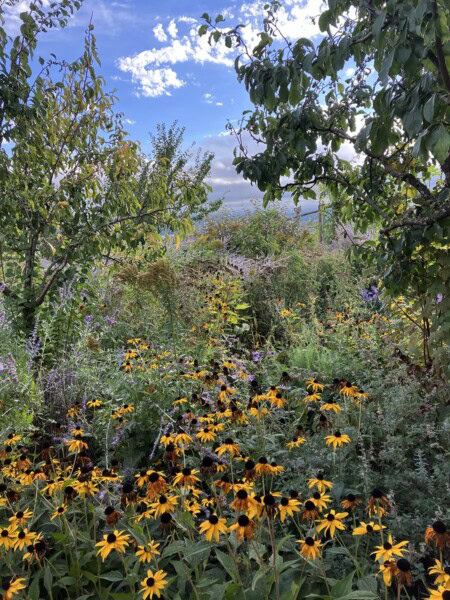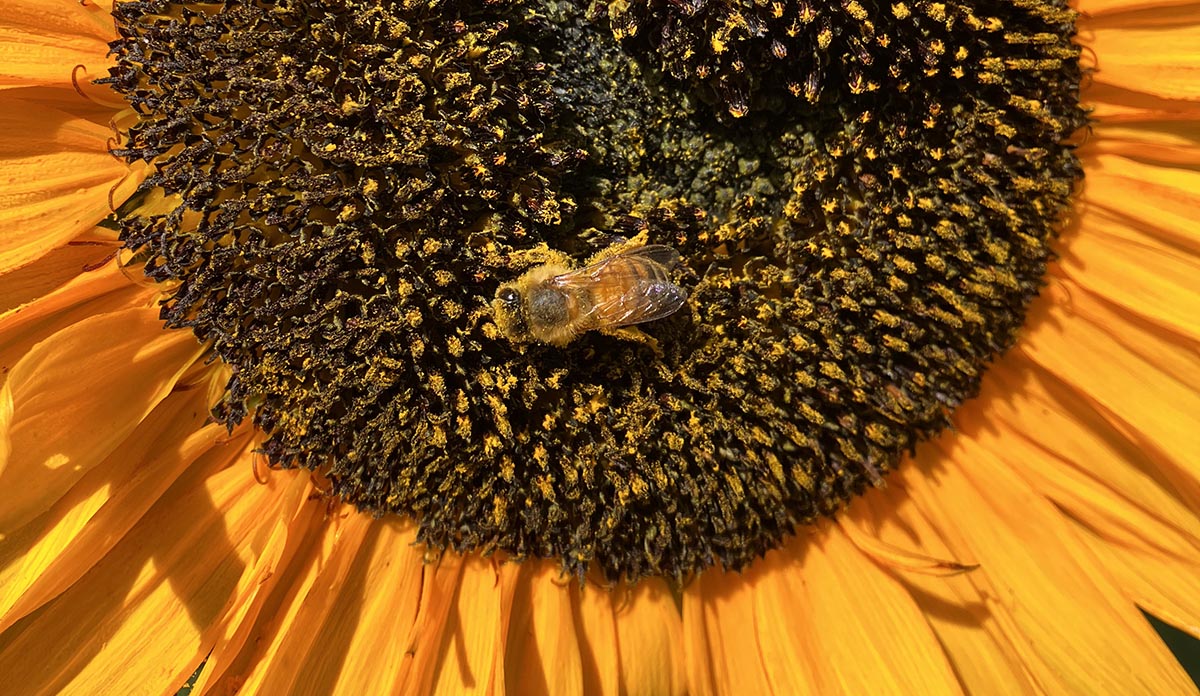“The difference with trees, when in balance, is they claim land not just for themselves, but for all life that follows them. They take what they need and share it with the wider community. They show there is nothing inevitable about a linear supply chain that extracts resources from and produces waste.” – Frederick Livingston, Trees are Bridges to the Sky
Humans are constantly reaching for metaphors to describe our experience of the world. There is a deep abiding beauty in this urge, of our fundamental need to relate to one another and to those we share this world with. Metaphors come most easily to me in autumn, a time when the earth exudes a smell of leaf mold. When pumice bins give a sigh of warmth and the tantalizing promise of fermentation. In this transitional time when the earth continues to pour out a bounty of gifts I find myself likening the relationship to that of a mother and child, so present in all that we harvest from the land and the nourishment we receive from it.

Metaphors haunt me in the garden, I see them in the mycelium networks that I uncover when I brush aside the bark mulch. In the daily woven webs of the industrious orb weavers. These metaphors push out from the soil with every baby seedling I water in the greenhouse. Recently, a metaphor found me while I was sitting quietly under the tall maple tree in the garden. It came to me in a moment of introspection in which I began to piece apart the reason why I continue to choose individual action each day to combat the dire issues facing our earth.
For years I have been unable to answer the simple questions of others when I explain how I go about living in reciprocity with the world. When I share how I refuse in my personal life to purchase single use plastics, admiration is swiftly followed by the statement that my impact really means nothing, that it is up to corporations. In my heart such a remark never felt true or right, but I could never explain a reasoning other than my insistent urging that we had to do something. Recently, I have realized that the answer lies in a metaphor, in the understanding and the likening of the natural world with our own world.
It was in reading the poetry in Trees are Bridges to the Sky by Frederick Livingston, that I discovered the truth I had felt but never been able to voice. One individual tree can support thousands of lives, it can reshape an ecosystem, creating community while directly impacting the world. I want to live life as a tree, creating a community of mutual flourishing, reseeding the world through my ideas, enriching the earth with my leaves, composting old ideas into new. I want my branches to shelter others, I want my fruits to feed my community. When my tree dies, I will allow it to break down slowly, to let my decay be recycled into the ingredients of a better future.
In choosing to mirror the life of a tree I actively choose to not purchase items with single use plastics. This often takes more time, thought, and occasionally money, but when I drive past the mounds of a landfill, I have no other option but to continue my course. Like a tree, I hope my own patterns of growth will inspire and shelter others, to be a seed bed that encourages us to opt out of an economy that is founded on disposable items. May we all choose to think hard about our day to day habits that are harming the world for generations of other beings, including those of our own species.
Robin Wall Kimmerer admits freely to having photosynthesis envy, and I must admit, that I do as well. To be a plant that can spin light into nutrients that feeds the world is a marvel that I do not take for granted. Instead I am human, but my gift is in spinning metaphors to understand how we relate to this world, and how we can do better by it. So I sit under the maple tree and picture the likeness of how one person’s individual actions are like that of a tree. I breathe in deeply and close my eyes, thinking of the day when one tree grows into a forest.
– With Love from the Garden
Shannon
Farm to Table
This month, our tasting room menu features apples, kohlrabi, honey, delicata squash, herbs, butternut squash, and purple kale.
